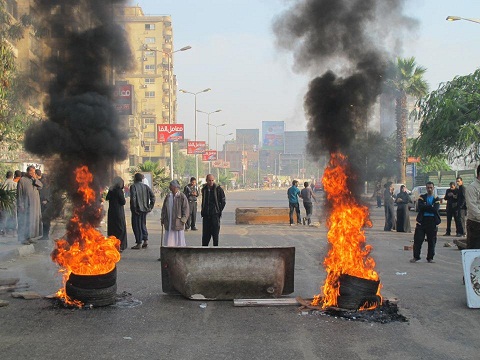The Virginia Tech University massacre is expected to make moviemakers think twice before producing any films that might lead to violent behavior. After all, allegations have been made that violence in the media provoked 23-year-old South Korean student Cho Seung-hui’s brutal bloodbath three weeks ago where he killed 32 students and faculty members before turning the gun on himself.
The incident hit home when Waleed Mohammed Shaalan s body arrived aboard an EgyptAir flight from New York, according to an airport official, speaking on condition of anonymity. The 32-year-old had been studying at Virginia Tech University for a PhD in Civil Engineering since August.
This crime, which was not the first of its kind to take place in the United States, made some Americans refuse to go to movies that feature similar violent scenes, according to Al-Masry Al-Youm newspaper.
Cinema censors in Egypt, which are considered to be a powerful authority, and the sole decision maker in the choice to screen movies locally, can cut scenes it deems to be too violent.
Wessam Soliman, scriptwriter, told The Daily Star Egypt that the cinema censorship system in Egypt has tremendously improved.
The censorship has become more flexible as it felt the need to cope with the fact that the world has become so open and everything eventually gets aired somewhere, Soliman said.
What is more important than the cinema censorship system is the self-censor.
We have created in ourselves a self-censor which constitutes a big challenge to all moviemakers in whether they will pass the viewer s personal censor or not, and get approved, Soliman said.
Soliman goes for the American movies censorship style that either sets a condition requiring a child to be accompanied by an adult or an age limit on violent movies.
This system, however, is not implemented in Egypt.
In Egypt, and this is obvious to any regular viewer, scenes of a sexual nature get cut from movies, while violence in most cases is left as it is with no restrictions.
Soliman personally does not like movies that contain violence and encourages moviemakers worldwide to represent violent cases with no violent scenes.
This is where the true art lies, when the scriptwriter is able to write about violence and investigate it without inducing violent feelings in the receiver, Soliman said.
Tarek El Shinnawy, movie critic, expressed his fear to The Daily Star Egypt that the Virginia Tech massacre would lead authorities to bring in more restrictions on movies, the losses outweighing the benefits.
According to El Shinnawy, people s reactions and their violent tendencies are different.
El Shinnawy recalls the case of a popular TV show, “Farafiro, that featured a boy with super powers that allowed him to fly. A young boy was fascinated by this character and died after jumping off the roof of his home.
But for so many other children who watched the show, it was just a show, explained El Shinnawy.
Blaming everything on films is a big overreaction, El Shinnawy said.
However, El Shinnawy has acknowledged that some movies had had a noticeably negative influence on viewers.
Adel Emam, [one of the most famous and most influential Egyptian actors in the last 20 years], who in one of his movies played the role of a drug user who used to take drugs inside his covered car, caused many youngsters to do the same, El Shinnawy claimed.
The Egyptian movies also play a major role in profiling the person who smokes hash as a nice person with very good sense of humor, something which encouraged many young people to smoke hash, just to fit that profile, El Shinnawy added.
He believes, however, that real life s effect on the cinema is much bigger than the cinema s effect on real life. Violence is present in our real life that the movies take most of their stories from, El Shinnawy said.

